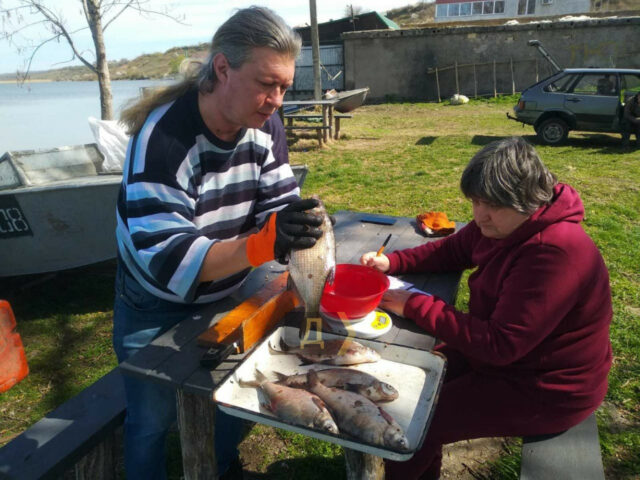The Critical State of Local Fish Populations
The health of local fish species in the rivers and estuaries of the Odessa region is alarmingly deteriorating. This issue has garnered significant attention from experts who closely monitor the aquatic ecosystems of the Black Sea. Sadly, the alarming decline in fish populations has serious implications not just for marine biodiversity but also for local livelihoods and recreational activities.
Expert Analysis Raises Concerns
Research conducted by the Institute of Fisheries and Marine Ecology reveals troubling data regarding the ichthyological and hydrobiological status of the region’s water bodies. According to the institute’s findings, species that have long thrived in these waters are now facing serious threats. Serhiy Khutory, the head of the Black Sea department, shared with «Dumska» that particular attention must be paid to endemic species such as:
- Chub
- Ide
- Bleak
- Roach
- Rudd
These species have seen a significant decline in their populations, stirring concern among conservationists and local communities alike.
Climate Change: The Driving Force
One of the most pressing issues identified by experts is climate change. Khutory elaborates, “We are witnessing warmer climate conditions, characterized by milder winters and less precipitation. This decrease in natural water runoff has led to reduced water levels in rivers and estuaries.” This phenomenon has a cascading effect:
- Reduced spawning grounds for fish
- Increased water mineralization and salinity
- Fewer habitats conducive to growth and reproduction
As a result, the essential environments that nurture local fish populations are vanishing, creating an unsettling scenario for the ecosystem.
A Growing Concern for Fish Populations
While there is still a market for species like carp, crucian carp, silver carp, catfish, and zander, the overarching trend indicates a worrying decline among local fish populations. Khutory expresses that “Although we are not at a catastrophic point yet, the situation is increasingly indicative of a declining trend for our native species.” This underscores the necessity for immediate attention and action, as the interdependence of aquatic biodiversity and human wellbeing is at stake.
Taking Action for Our Waters
What can be done to address these alarming issues? Here are some unique strategies you can consider, whether you are a concerned citizen, a policymaker, or a local business owner:
- Advocate for Sustainable Practices: Support local fisheries that employ sustainable methods to protect aquatic habitats.
- Engage in Conservation Efforts: Participate in or promote clean-up initiatives for rivers and estuaries to preserve existing fish habitats.
- Educate Others: Foster community awareness about the importance of protecting local fish species and the role they play in the ecosystem.
- Support Policy Changes: Encourage local governments to implement policies that address climate change and its impact on water bodies.
By fostering a collaborative approach, we can work towards revitalizing our rivers and protecting the precious fish species that inhabit them. Remember, every small action counts towards creating a larger impact!
In closing, it’s crucial that we recognize the interconnectedness of our environment and our lives. The declining populations of local fish species serve as a stark reminder of how much we rely on healthy ecosystems for our outdoor experiences and local economies. Let’s join hands in safeguarding these aquatic treasures for future generations!






